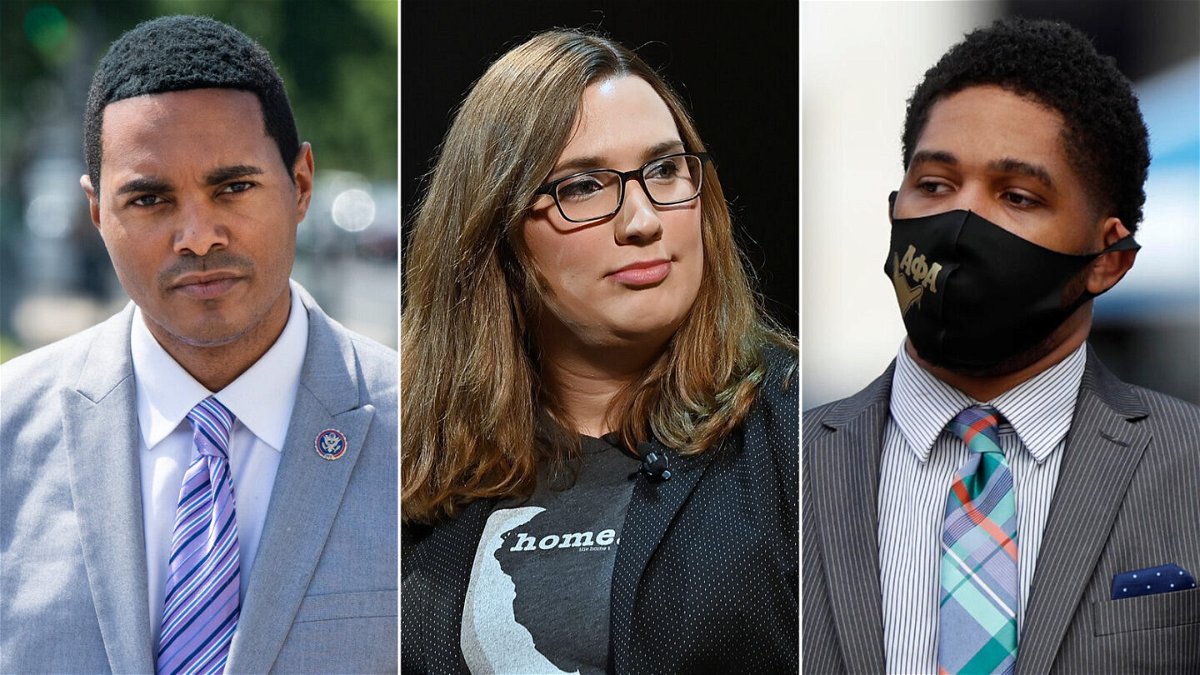Nearly 1,000 US elected officials identify as LGBTQ, but equitable representation is still a ways off, report finds

US Rep. Ritchie Torres
By Scottie Andrew, CNN
There are nearly 1,000 known LGBTQ elected officials in the US, according to a new report — a significant increase from just four years ago, when fewer than 450 elected officials in the US were known to identify as LGBTQ.
All but one state — Mississippi — has elected an LGBTQ official, according to the LGBTQ Victory Institute, a group that identifies and trains potential LGBTQ candidates. Still, LGBTQ elected officials make up less than 0.2% of all US elected officials, and to reach equitable representation, another 28,000-plus LGBTQ people must be elected, the organization said.
“We need a moonshot effort to catch up, and that requires LGBTQ people to run for office in much greater numbers,” said Elliot Imse, vice president of communications at the LGBTQ Victory Fund.
When queer and trans people hold elected office, their mere presence “has an outsize influence on policy and attitudes,” according to Andrew Reynolds, a senior research scholar at Princeton University who studies LGBTQ politics, among other areas.
Their colleagues are able to “put a face to a community,” Reynolds told CNN, noting that this engenders empathy for LGBTQ people and issues.
It’s especially important to elect more LGBTQ people, Imse said, now that more than 30 states have introduced bills that target transgender residents.
“State legislatures and city councils across the nation are launching relentless legislative attacks on LGBTQ people — and especially trans people — and our best defense is having LGBTQ elected officials in those legislative bodies,” he said.
Over 140 LGBTQ officials were elected in the last year
Between June 2020 and June 2021, 143 more LGBTQ leaders were elected, bringing the total of LGBTQ elected officials in the US to 986, most of whom serve in local office, the report found. (Precise data on LGBTQ officials has been difficult to collect both now and historically, as not every LGBTQ person has shared their sexual orientation with voters or while in office. The report draws from those officials who have disclosed that information.)
The US made significant progress in 2020: Tennessee, which before 2020 had never elected an LGBTQ official, elected two on the state level — Rep. Torrey Harris, a Democrat, and Rep. Eddie Mannis, a Republican. US Rep. Ritchie Torres of New York became the first Black and Latinx gay man to serve in Congress. Transgender politicians such as Delaware state Sen. Sarah McBride and Vermont state Rep. Taylor Small, among others, joined Virginia Del. Danica Roem, who in 2017 became one of the country’s first trans elected officials.
The last year has also seen a 51% increase in the number of LGBTQ elected officials of color, the report found. Now, about 29% of all LGBTQ elected officials are people of color, compared to just 12.1% of the overall population of elected officials.
The election of former President Donald Trump and policies he supported that impacted LGBTQ people — such as rolling back protections against discrimination for trans people and banning trans people from serving in the military — were “major motivators for many LGBTQ people” to run for office, Imse said.
He said it remains essential to continue electing officials willing to protect the rights of LGBTQ constituents.
Working with LGBTQ officials can impact policy and attitudes
Electing queer and trans officials can play a significant role in the kinds of policies that are enacted and societal attitudes toward the LGBTQ community, said Reynolds, the Princeton University researcher.
Reynolds wrote a journal article in 2013 that found, once in office, gay leaders have a “transformative effect on the views and voting behavior of their straight colleagues.” When in positions of power, LGBTQ officials can set agendas that benefit queer and trans people and build alliances with colleagues who are not LGBTQ to join their causes, he wrote.
That’s still true, he said, but since then, LGBTQ issues have continued to polarize politicians, particularly when it comes to the rights of transgender people. Bills that would impact transgender children and teens have been introduced in more than half of US states and, if passed, would limit their access to gender-affirming health care, participation in school sports that align with their gender, and more.
Seeing queer and trans people in positions of power, though, is still meaningful to young LGBTQ people who seek a similar path, Reynolds said.
“Every out queer person in a highly visible position says that this is natural, normal and to be expected,” Reynolds said.
In 2021, there are several high-profile examples of LGBTQ politicians: Gov. Jared Polis of Colorado is gay, and Gov. Kate Brown of Oregon is bisexual. In Congress, there’s Sen. Tammy Baldwin of Wisconsin, one of the first lesbian women in the US Senate, and Rep. Sharice Davids of Kansas, one of the first lesbian Native American women elected to federal office. And there are more than 600 local officials who are LGBTQ, the report found.
The US still needs to elect more than 28,000 LGBTQ leaders to reach equitable representation, according to the Victory Institute report — LGBTQ people make up more than 5% of the population, according to polling firm Gallup, but less than 0.2% of all elected officials in the US. But LGBTQ people are increasingly running for office, and American voters are, in many cases, electing them.
The-CNN-Wire
™ & © 2021 Cable News Network, Inc., a WarnerMedia Company. All rights reserved.